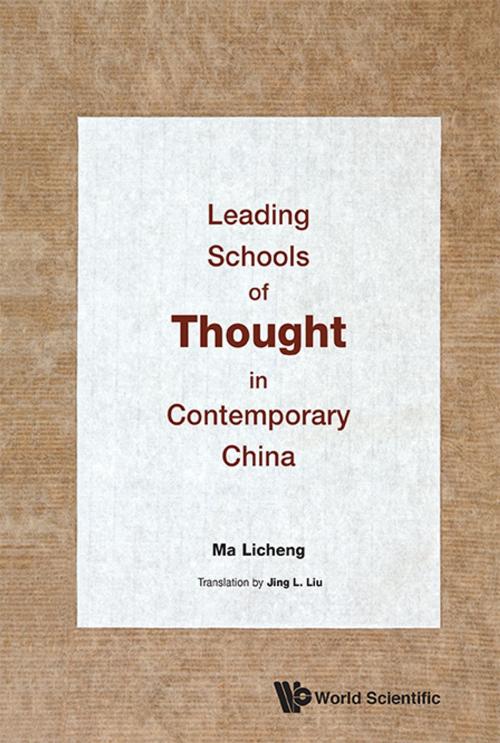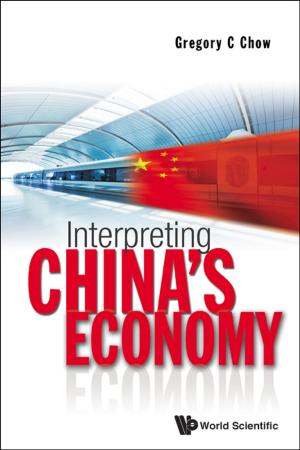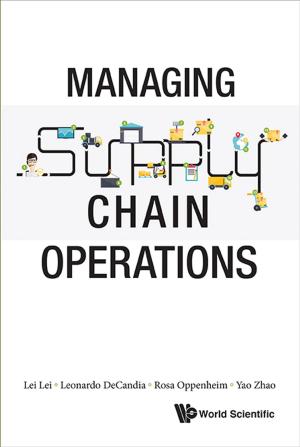Leading Schools of Thought in Contemporary China
Nonfiction, Social & Cultural Studies, Political Science, International| Author: | Licheng Ma | ISBN: | 9789814656405 |
| Publisher: | World Scientific Publishing Company | Publication: | September 23, 2015 |
| Imprint: | WSPC | Language: | English |
| Author: | Licheng Ma |
| ISBN: | 9789814656405 |
| Publisher: | World Scientific Publishing Company |
| Publication: | September 23, 2015 |
| Imprint: | WSPC |
| Language: | English |
The evolution of China's intellectual landscape, especially the battles among different influential social and political ideas, sheds light on its history. Leading Schools of Thought in Contemporary China offers a close-up look of eight major schools of thought that swept across China between 1978 and 2008, ranging from Deng Xiaoping's thoughts to Neo-Confucianism. Subject to unrelenting debates among both scholars and the general public, the popularity of these ideas waxed and waned throughout those turbulent decades. They have two things in common. First, they are all problem-oriented insofar as they carry their advocates' hopes of finding in them solutions to both new and old problems the country has faced. Second, while richly informed by such traditions as authoritarianism and Confucianism that have long held sway in much of Asia, including China, these ideas also reveal the deep influence of, and even affinity with, some of the most influential social and political theories in the Western tradition, including liberalism, socialism and conservatism. Readers will find in the continuing contestation among these theories in the marketplace of ideas not only much of what is exciting about the intellectual scene in China today, but also clues about China's future.
Contents:
- Deng Xiaoping's Southern Tour: Socialism with Chinese Characteristics
- Defenders of Late Mao Zedong Thought: The Old Left School
- The New Left School
- Democracy in China: The Democratic Socialist School
- Freedom as a New Cultural Heritage: The Liberal School of Thought
- Bending Branches and the Rebounding of Nationalism: The Nationalist School of Thought
- The Surging Tide of Populism: The Populist School of Thought
- The Political Demands of Mainland Neo-Confucianism: The Neo-Confucian School
Readership: China scholars; historians; students in political science and political theory/philosophy; and general public interested in China's history. Key Features:
- This is the first book that provides a faithful overview of the most influential schools of thought in contemporary China
- The book gives a thorough exposition of each school of thought it covers, including its main proponents and their positions on various contemporary issues. This is consistent with what readers are most interested in
- Some of the more sensitive material in the book are being disclosed for the first time, which should satisfy readers' curiosity about these topics
- Written by world-renowned author, Ma Licheng, who co-authored the best-selling book Crossing Swords (Jiaofeng) (1998), this book has been published in Chinese and Japanese, with the Korean edition forthcoming
The evolution of China's intellectual landscape, especially the battles among different influential social and political ideas, sheds light on its history. Leading Schools of Thought in Contemporary China offers a close-up look of eight major schools of thought that swept across China between 1978 and 2008, ranging from Deng Xiaoping's thoughts to Neo-Confucianism. Subject to unrelenting debates among both scholars and the general public, the popularity of these ideas waxed and waned throughout those turbulent decades. They have two things in common. First, they are all problem-oriented insofar as they carry their advocates' hopes of finding in them solutions to both new and old problems the country has faced. Second, while richly informed by such traditions as authoritarianism and Confucianism that have long held sway in much of Asia, including China, these ideas also reveal the deep influence of, and even affinity with, some of the most influential social and political theories in the Western tradition, including liberalism, socialism and conservatism. Readers will find in the continuing contestation among these theories in the marketplace of ideas not only much of what is exciting about the intellectual scene in China today, but also clues about China's future.
Contents:
- Deng Xiaoping's Southern Tour: Socialism with Chinese Characteristics
- Defenders of Late Mao Zedong Thought: The Old Left School
- The New Left School
- Democracy in China: The Democratic Socialist School
- Freedom as a New Cultural Heritage: The Liberal School of Thought
- Bending Branches and the Rebounding of Nationalism: The Nationalist School of Thought
- The Surging Tide of Populism: The Populist School of Thought
- The Political Demands of Mainland Neo-Confucianism: The Neo-Confucian School
Readership: China scholars; historians; students in political science and political theory/philosophy; and general public interested in China's history. Key Features:
- This is the first book that provides a faithful overview of the most influential schools of thought in contemporary China
- The book gives a thorough exposition of each school of thought it covers, including its main proponents and their positions on various contemporary issues. This is consistent with what readers are most interested in
- Some of the more sensitive material in the book are being disclosed for the first time, which should satisfy readers' curiosity about these topics
- Written by world-renowned author, Ma Licheng, who co-authored the best-selling book Crossing Swords (Jiaofeng) (1998), this book has been published in Chinese and Japanese, with the Korean edition forthcoming















